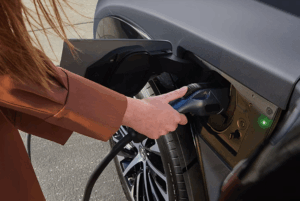By Eric Peters
The Depreciation Dilemma of Electric Vehicles—Even for Lexus
Electric vehicles lose more than just charge. They also lose value—at a rate that mirrors their battery depletion and the time wasted during recharging.
Not even Lexus is immune to this hemorrhaging of value. For decades, Lexus has enjoyed one of the lowest depreciation rates among automotive brands. Lexus owners have historically seen their vehicles retain value longer, with models like the RX350—renowned for reliability—commonly lasting 20 years or more.
But the RZ, Lexus’ electric “device,” breaks that trend. It is projected to retain only 45% of its original $42,800 MSRP after five years, equating to roughly $20,000 in value. In practical terms, that’s a $4,000 loss per year or about $330 per month. Not long ago, that would’ve bought you a decent car, not lost you one.
And the RZ is not alone. EVs as a category depreciate roughly 30% faster than gas-powered vehicles. This compounds existing concerns around time inefficiencies—waiting hours to charge at home or 15–20 minutes at “fast” chargers. EV advocates argue that charging happens while you sleep, but the reality is you’re still waiting—time lost that you don’t encounter with a full gas tank, ready to go in emergencies.
Further compounding this depreciation are the effects of frequent fast-charging, which degrades battery life more quickly. Buyers of used EVs know this, which makes five-year-old models particularly unattractive due to uncertain battery health.
The final irony: luxury-branded EVs often rely on battery packs sourced from the same factories as budget EVs. With less differentiation in actual hardware, why pay more for a badge?
Eric’s Website: https://www.ericpetersautos.com
X- @epautos
Facebook – https://www.facebook.com/libertariancarguy/







